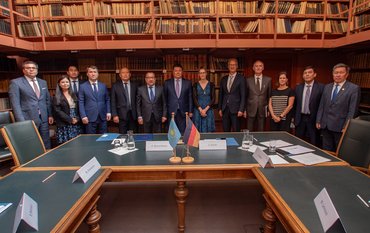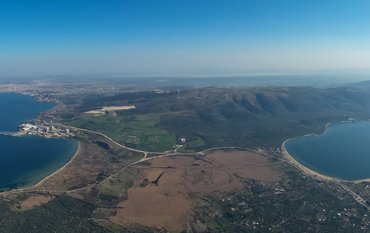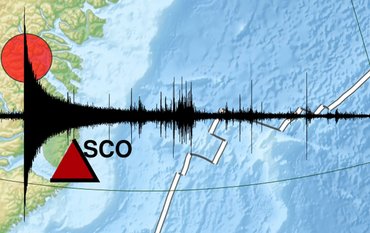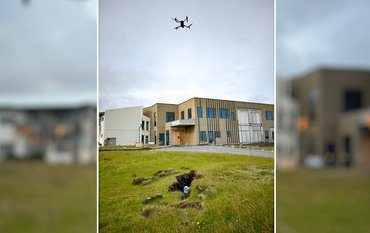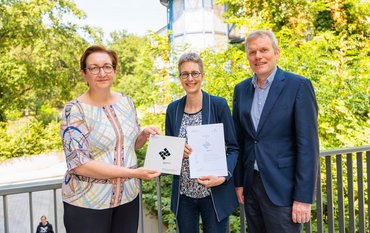Irina Zhelavskaya, who very successfully completed her PhD in October 2020 in Section 2.7 Space Physics and Space Weather, was awarded the Friedrich Robert Helmert Prize. The Society of Friends and Sponsors of the GFZ awards this prize to scientists for the best PhD thesis of the year 2020/2021.
Zhelavskaya earned her PhD (edit:) as Geo.X PhD-Fellow at the University of Potsdam and the GFZ on Computational Physics and researched in particular the dynamics of the plasmasphere, a region of the cold and dense plasma surrounding the Earth, that is important for GNSS navigation and predicting hazardous effects of radiation in space on spacecraft. Her thesis was devoted to the modeling of the plasmasphere and she has developed a first successful machine learning model of that region based on sparse satellite observations. In her thesis, she has also demonstrated how one can combine the knowledge obtained from the data and from the first principles by using data assimilation. Furthermore, she has extended the developed machine learning-based tools and applied them to another important problem in the field of space weather, the prediction of the geomagnetic index Kp.
The award represents a tribute to doctoral students who, through their research activities and scientific achievements, contribute significantly to the improved understanding of the Earth system and to the overall success of research work at the German Research Centre for Geosciences. The award winner receives prize money of € 1,500, a certificate, and a one-year honorary membership in the Society of Friends and Sponsors of the GFZ. The prize money is not earmarked for a specific purpose.



![[Translate to English:] [Translate to English:] Abror Gafurov von dem Schriftzug "Welcome to Azerbaijan" und den UN und COP Logos](/fileadmin/_processed_/2/5/csm_2024_11_Baku_COP29_Abror_Gafurov_1042faec82.jpeg)



![[Translate to English:] Martin Herold standing in front of the library on the Telegrafenberg](/fileadmin/_processed_/c/d/csm_Martin_Herold_d385ee4dd9.jpeg)
![[Translate to English:] Many people are listening to a presentation in the GFZ lecture hall.](/fileadmin/_processed_/c/a/csm_1_Bild1_hell_b9c0e9f5ed.jpeg)





![[Translate to English:] Both scientists sitting on stools in front of a wall of books in the Telegrafenberg library](/fileadmin/_processed_/6/6/csm_Buiter_Castell_DORA_4_e87cb1ea18.jpeg)
![[Translate to English:] Gruppenbild mit 4 Personen](/fileadmin/_processed_/8/d/csm_20241017_GFZ-Emmerman-Medal-005_web_reinhardtundsommer_21a414fa4a.jpeg)






![[Translate to English:] Ice landscape with five red tents](/fileadmin/_processed_/8/9/csm_Zeltlager_auf_dem_Eis_Urheberin_Jenine_McCutcheon_5ced2d523b.jpeg)



